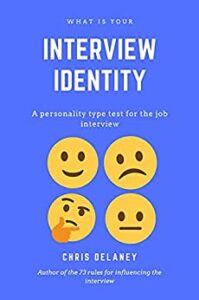CAREER
Are you bored or depressed with your current job? Do you know you could be happy in work but you don’t know what career would suit you? Would you like know how many opportunities are available in the job market?
First their are thousands of careers and jobs available, to find your perfect career you need to match your personality and values to that of a career – what I mean by that is, if you get your energy from being around others and having variety then a career in accounting most likely wouldn’t suit you, would it?
CAREER’s
To give you an idea of the amount of UK careers available I have recorded just a few for you to browse, but more importantly – at the end of this article you can complete a quick career test to match your personality type to a career choice.
Administrator |
Ecologist |
Massage Therapist |
Percussionist |
Agronomist |
Economist |
Mathematician |
Photographer |
Astronomer |
Editor |
Mechanical Engineer |
Physiotherapist |
Auditor |
Environmental Scientist |
Model |
Plastic Surgeon |
Archaeologist |
Estate Agent |
Mountaineer |
Police Officers |
Architect |
Ethnologist |
Muralist |
Psychiatrist |
Astrologer |
Ethologist |
Musician |
Psychologist |
Builder |
Electrical Engineer |
Meteorologist |
Public Relations Officer |
Car Designer |
Entrepreneur |
Microbiologist |
Physicist |
Cardiologist |
Farmer |
Medical Transcriptionist |
Physiologist |
Cartoonist |
Fashion Designer |
News Presenter |
Reporter |
Chef |
Film Producer |
Novelist |
Sailor/Navy Officers |
Chemical Engineer |
Forensic Scientist |
Nurse |
Scientist |
Choreographer |
Financial Advisor |
Numerologist |
Screenwriter |
Comedian |
Flight Instructor |
Numismatist |
Sculptor |
Computer Engineer |
Game Designer |
Obstetrician |
Software Engineer |
Computer Programmer |
Geophysicist |
Ophthalmologist |
Stage Designer |
Consultant |
Graphic Artist |
Ornithologist |
Surgeon |
Correspondent |
Guitarist |
Orthopedist |
Swimmer |
Cosmetologist |
Gynecologist |
Painter/Artist |
Singer |
Civil Engineer |
Genealogist |
Paleontologist |
Sociologist |
Coach |
Geologist |
Pathologist |
Veterinarian |
Costume Designer |
Hairstylist |
Pediatrician |
Writer |
Cryptographer |
Historian |
Pedologist | Zoologist |
| Dancer | Host/Hostess |
CHOOSING YOUR NEXT CAREER
You spend a third of your life in a job, which means you need to find a career you will love; imagine waking up each morning excited about going to work – how would this situation change you life? research has shown that people who enjoy their career are more positive and healthy.
To choice a new career you have two choices you can even meet with a CAREERS ADVICER or complete the Career Personality Test Below?
PERSONALITY TYPE
Today you can learn which career best suits your values and personality, by completing the career personality quiz. We normally charge £9.99 for this test but today you can complete it for FREE and receive a 12 page Personality Profile
WHAT TO DO NEXT? Click this link: PERSONALITY PROFILE – FREE
If you enjoyed this article you will also enjoy reading:








